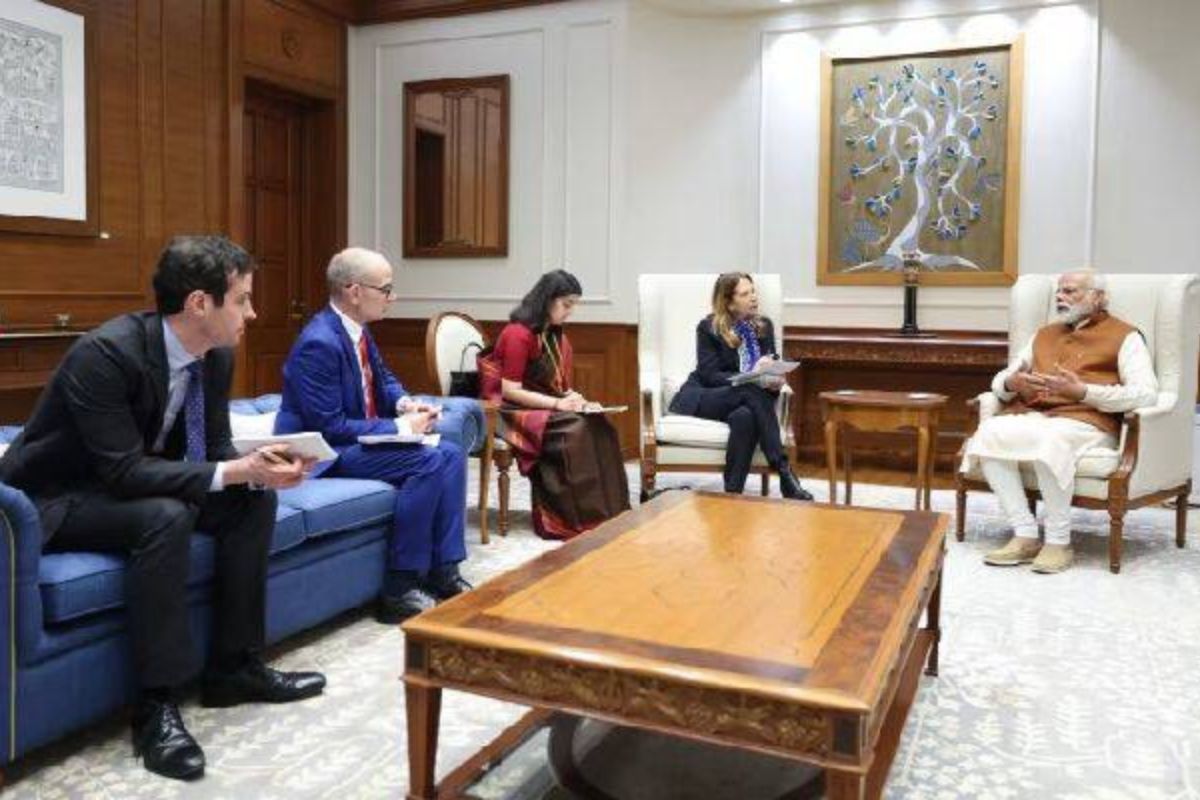LS polls: PM Modi to campaign in K’taka, Maharashtra today
Intensifying the campaign for the Lok Sabha elections, Prime Minister Narendra Modi will address four public meetings on Monday -- one in Karnataka and three in Maharashtra.
In an interview to the London-based Financial Times, he said steps like ‘Clean India’ nationwide toilet building campaign and bringing nearly one billion people online through a path-breaking digital infrastructure push have been realised without amending the Constitution.

Prime Minister Narendra Modi has rejected any talk of amending the Constitution, saying his government has taken the ”most transformative steps” without doing so through public participation.
In an interview to the London-based Financial Times, he said steps like ‘Clean India’ nationwide toilet building campaign and bringing nearly one billion people online through a path-breaking digital infrastructure push have been realised without amending the Constitution.
”Any talk of amending the Constitution is meaningless,” he said.
Advertisement
About concerns over the health of Indian democracy, Modi, ”Our critics are entitled to their opinions. However, there is a fundamental issue with such allegations, which often appear as criticisms.”
He went on to say that these claims not only insult the intelligence of Indian people but also underestimate their deep commitment to values like diversity and democracy.
The prime minister, when asked about the future of the Muslim minority in India, pointed instead to the success of Indian Parsis who he described as a religious micro-minority residing in India.
”Despite facing persecution elsewhere in the world, they have found a safe haven in India, living happily and prospering…that shows that the Indian society itself has no feeling of discrimination towards any religious minority,” he said.
On his government’s alleged crackdown on his critics, Modi laughed and said, ”There is a whole ecosystem that is using the freedom available in our country to hurl these allegations at us every day through editorials, TV channel, social media, videos, tweets etc.”
He said they have the right to do so but others also have an equal right to respond with facts.
The PM also pointed to the long history of outsiders who underestimated India. ”In 1947 when India became independent, the British who left made a lot of very dire predictions about India’s future. But we have seen that those predictions and preconceptions have all been proven false.” Similarly those who today doubt his government will be proven wrong, he added.
He brushed aside a question about the recent relaxation of India-China tensions, saying they are best addressed by the people and the governments of the two countries.
On the ongoing Israel-Hamas conflict, he said India has supported the delivery of humanitarian aid to Gaza, while reiterating New Delhi’s support to a two-state solution. ”I remain in touch with the leaders in the region. If there is anything India can do to take forward the efforts towards peace, we will certainly do so.”
Modi also spoke candidly about India’s economic trajectory, pushing back against concerns raised by opponents and shedding light on his vision for the nation’s future. He emphasised India’s commitment to building a robust USD 5 trillion economy, positioning the nation as a destination for investment and progress.
“You have done a comparison with China, but it might be more apt to compare India with other democracies. It is important to recognise that India wouldn’t have achieved the status of the world’s fastest growing economy if the issues you have highlighted were as pervasive as suggest. often these concerns stem from perception and altering perceptions takes time,” he said.
The PM said his government’s mission was to propel India into developed status by 2047, marking its 100th anniversary, showcasing the nation’s significant progress from the “Fragile Five” to the world’s fifth-largest economy.
He also pointed to the need to create an environment that would encourage more people to build in India. The PM, when asked about an attempt to bring back some of the many Indian-origin CEOs in global companies, said India was creating an environment to encourage talent in India.
“It is not the matter of bringing them back, rather our goal is to create an environment in India that naturally gets people to have a stake in India. We aspire to create conditions where everyone sees value in being in India to invest and expand their operations here ” he said.
Advertisement